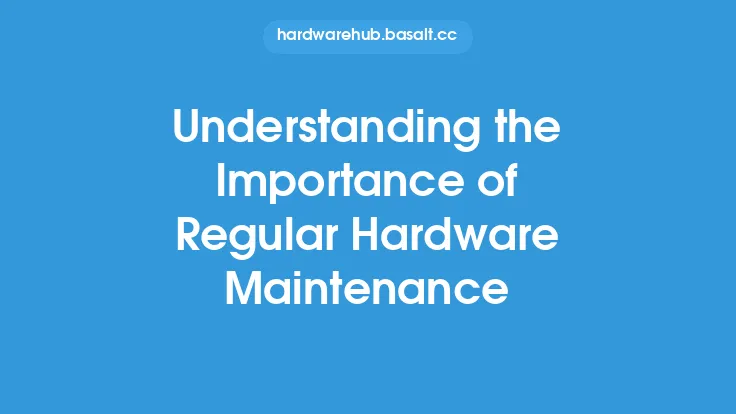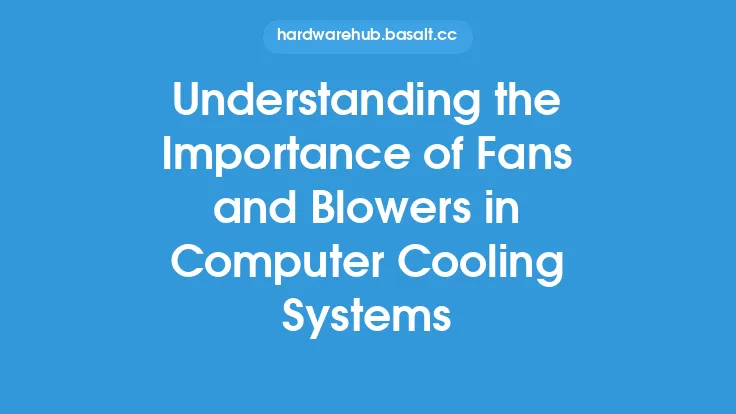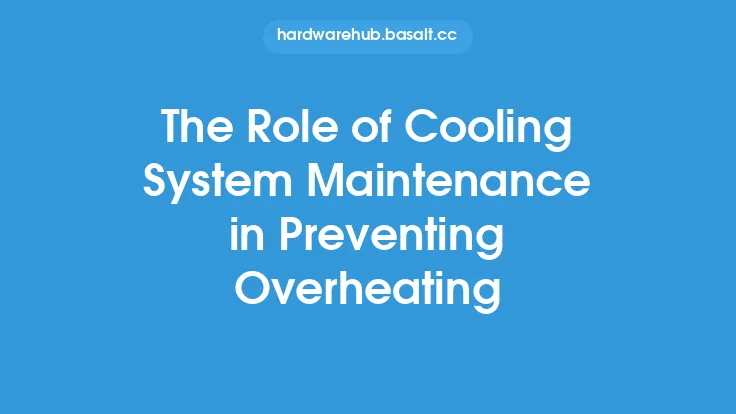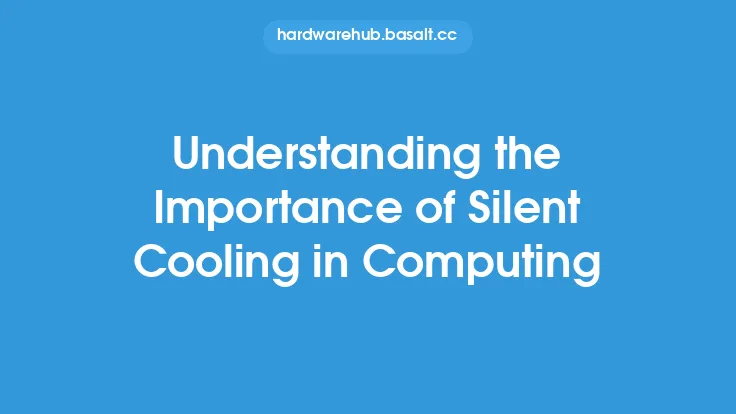Regular maintenance of cooling systems is essential to ensure their optimal performance, efficiency, and longevity. Cooling systems, whether used in computers, vehicles, or industrial settings, play a critical role in preventing overheating, which can lead to damage, downtime, and even complete system failure. In this article, we will delve into the importance of regular cooling system maintenance, exploring the technical aspects and benefits of proper upkeep.
Introduction to Cooling Systems
Cooling systems are designed to dissipate heat generated by various components, such as CPUs, GPUs, and engines. These systems typically consist of a heat source, a heat transfer medium (e.g., air, water, or refrigerant), and a heat sink or radiator. The heat transfer medium absorbs heat from the source and transfers it to the heat sink, where it is dissipated into the surrounding environment. Regular maintenance is crucial to ensure that these components function correctly and efficiently.
The Consequences of Neglecting Cooling System Maintenance
Neglecting cooling system maintenance can have severe consequences, including reduced system performance, increased energy consumption, and premature component failure. When cooling systems are not properly maintained, dust, dirt, and other debris can accumulate, blocking airflow and reducing the system's ability to dissipate heat. This can lead to overheating, which can cause damage to components, reduce their lifespan, and even result in complete system failure. Furthermore, neglected cooling systems can also lead to increased energy consumption, as the system works harder to cool the components, resulting in higher electricity bills and a larger carbon footprint.
Benefits of Regular Cooling System Maintenance
Regular maintenance of cooling systems offers numerous benefits, including improved system performance, increased efficiency, and extended component lifespan. By cleaning and inspecting the system regularly, users can ensure that it operates at optimal levels, providing reliable cooling and preventing overheating. Additionally, regular maintenance can help identify potential issues before they become major problems, reducing the risk of downtime and costly repairs. Proper maintenance can also improve the overall efficiency of the system, reducing energy consumption and minimizing the environmental impact.
Technical Aspects of Cooling System Maintenance
From a technical perspective, cooling system maintenance involves a range of tasks, including cleaning, inspecting, and testing the system's components. This may involve removing dust and debris from heat sinks, radiators, and fans, as well as checking for signs of wear and tear, such as corrosion or damage to hoses and belts. Users may also need to inspect the system's thermal interface materials, such as thermal paste or pads, to ensure they are functioning correctly. Furthermore, maintenance may involve testing the system's performance, using tools such as thermometers or pressure gauges, to identify potential issues and optimize the system's operation.
Best Practices for Cooling System Maintenance
To ensure the optimal performance and longevity of cooling systems, users should follow best practices for maintenance. This includes establishing a regular maintenance schedule, which may involve daily, weekly, or monthly tasks, depending on the system's usage and environment. Users should also ensure that they have the necessary tools and materials, such as cleaning solutions and replacement parts, to perform maintenance tasks effectively. Additionally, it is essential to follow proper safety procedures, such as disconnecting power sources and wearing protective gear, to prevent injury or damage to the system.
Conclusion
In conclusion, regular cooling system maintenance is essential to ensure the optimal performance, efficiency, and longevity of these critical systems. By understanding the importance of maintenance and following best practices, users can prevent overheating, reduce energy consumption, and extend the lifespan of their cooling systems. Whether used in computers, vehicles, or industrial settings, cooling systems play a vital role in preventing damage and downtime, and proper maintenance is crucial to ensuring their reliable operation. By prioritizing cooling system maintenance, users can enjoy improved system performance, increased efficiency, and reduced costs, making it a critical aspect of overall system upkeep.





